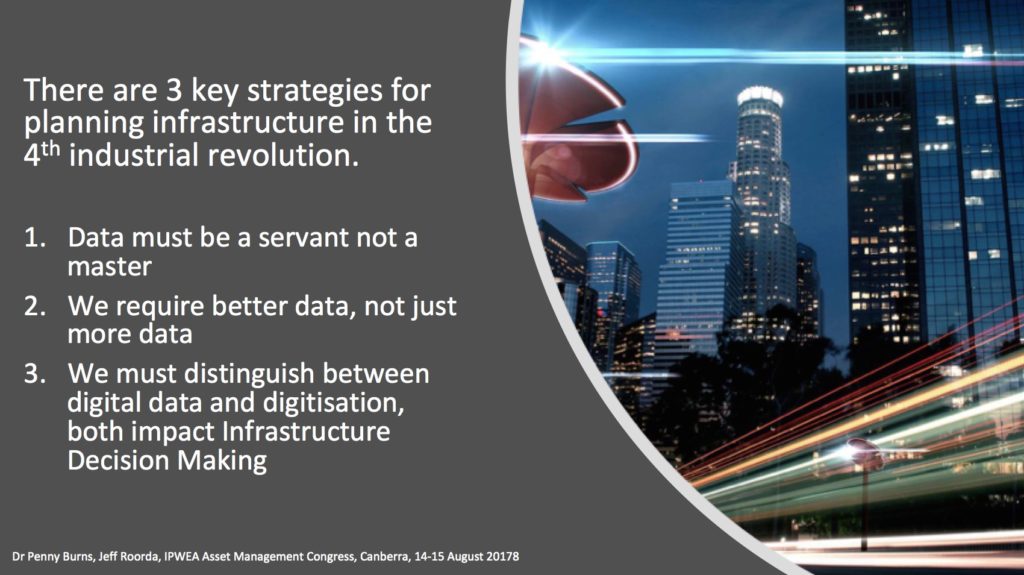
Transparency of government is the greatest tool we have for ensuring the best decisions are made by officials and functionaries and reducing corruption and poor decision making.
Legislation, guidelines and reviews surrounding Public-Private Partnerships (PPP) abound as we collectively try to find a way for government to utilise private efficiency and expertise without exposing the public to risks associated with corruption of officials and contracts that serve the private rather than public partner.
The problem with many PPPs and government business, are poorly constructed contracts. Inappropriate measures, guarantees of returns and unclear maintenance and renewal responsibilities.
In the past it has been difficult for us to measure the use of infrastructure by different groups, the consumption / degradation of infrastructure, the degree of maintenance and renewal required and applied to infrastructure.
This has lead to simplistic drafting of contracts based on unsupported estimates.
Enter micro-transactions and Internet of Things.
We now have the unprecedented ability to measure almost everything, and cheaply. We have technology that allows us to make the recording of these measurements publicly available and immutable, and we have people writing clever contracts based on micro-transactions.
By combining these things there is opportunity for us to include all aspects of infrastructure in government contracts for PPPs. Reward can flow to the Private Partner based on utilisation, maintenance, renewal of the infrastructure as well as other measurable impacts, such as improvement of performance of the infrastructure, or lessening of burdens on society and the environment.

The possibilities of big data are impressive but let us not get carried away.
Not only is there the danger of trusting in the results of data manipulation that we do not understand (cf the many studies showing the dangers of ‘private’ algorithms that are not open to analysis), but there is the greater danger that we put our faith in aiming at ‘data’ outcomes (e.g. KPIs) rather than people outcomes.
So let us put our effort into better measurements of what really matters – better (i.e. more relevant) data. This will inevitably mean using non-dollar measures – and judgement.
Discussion today tends to conflate the benefits of greater use of digital data and digitisation itself. Both are valuable, and both impact infrastructure decision making, but they are not the same.
There is currently much discussion of loss of work opportunities through the use of robots. If our decisions are driven purely by data, then robots can do a great job. But if we want our decisions to include values such as kindness, compassion, and fairness, then we need people.
We appreciate the benefits of big data but do we really want to live in a world without kindness, compassion and fairness?

Recent Comments